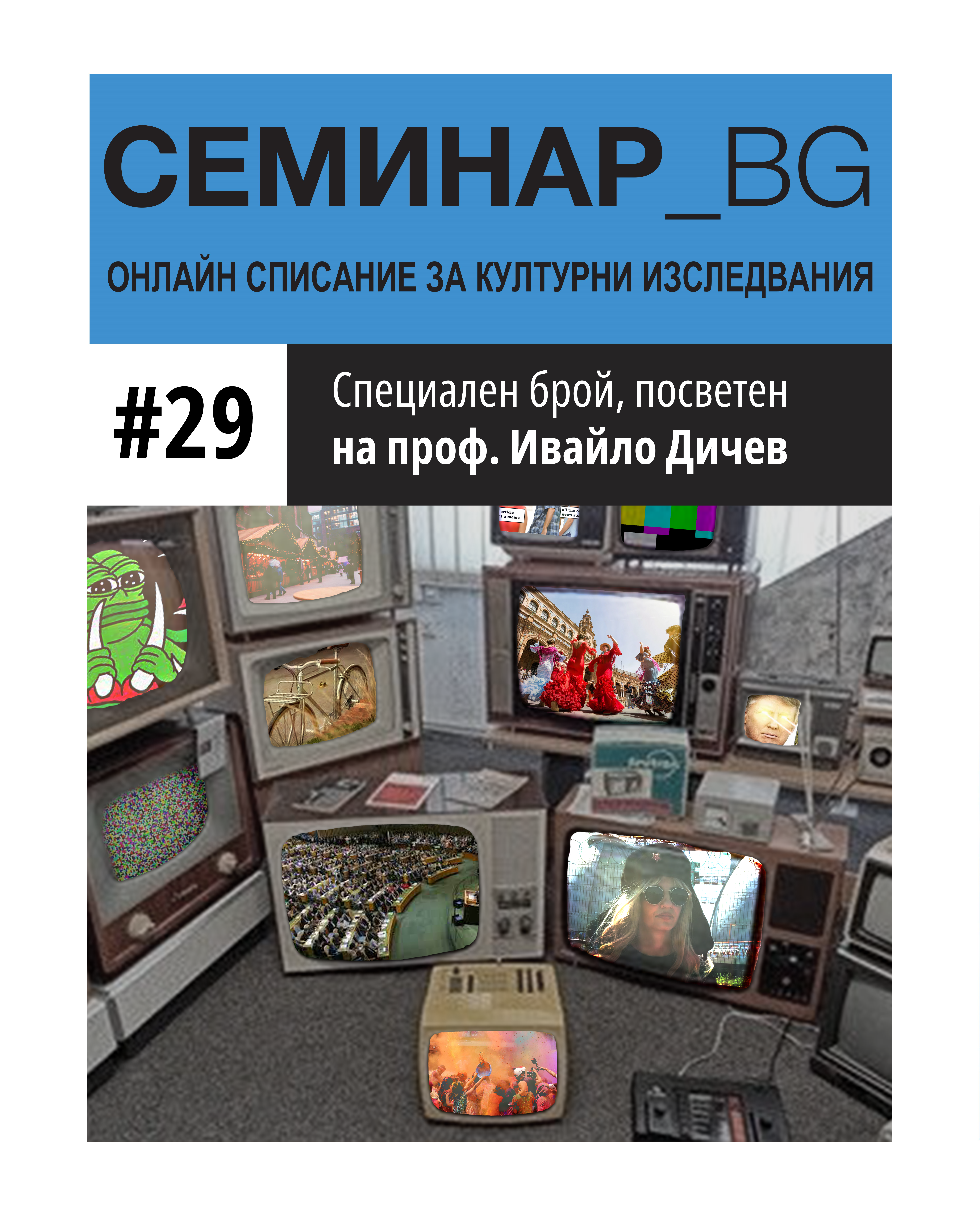Очертанията на постпубличността
DOI :
https://doi.org/10.60054/SBG.2025.29.104-116Ключови думи :
публичност, публична сфера, нови медии, социални мрежи, постистина, комуникацияАбстракт
Текстът се фокусира върху дискусиите за кризата на публичната сфера в контекста на прехода от традиционни към нови медии. Проследяват се някои ключови тези, свързани деформациите на публичността и новите механизми при формиране на публиките и общественото мнение. Разглежда се възможността за концептуализиране на нова, постпублична сфера, която е отрицание на идеята на Хабермас за публичност, но същевременно функционира като инструмент за разбиране и анализиране на комуникативната ситуация в ерата на постистината.
Библиография
Хабермас, Юрген. 1995. Структурни изменения на публичността. София: УИ „Св. Кл. Охридски.
Хабермас, Юрген, 2023. Едно ново структурно изменение на публичността и делиберативната политка. София: Критика и хуманизъм.
Beckman, Frida. 2022. The Paranoid Chronotope: Power, Truth, Identity. Stanford, California: Stanford University Press.
Benhabib, Seyla. 1997. “The Embattled Public Sphere: Hannah Arendt, Juergen Habermas and beyond”. Theoria, 44: 1–24. doi: 10.3167/th.1997.449002
Bennett, Lance and Pfetsch, Barbara. 2018. Rethinking Political Communication in a Time of Disrupted Public Spheres. Journal of Communication, 68 (2): 243–253.
Blumler, Jay. 2018. “The Crisis of Public Communication 1995-2017”. Javnost – The Public, 25(1–2): 83–92.
Castells, Manuel. 2009. Communication Power. Oxford: Oxford University Press.
Cohen, Julie. 2019. Between Truth and Power: The Legal Constructions of Informational Capitalism. New York, NY: Oxford University Press.
Cosentino, Gabriele. 2020. Social Media and the Post-truth World Order: The Global Dynamics of Disinformation. Cham, Switzerland: Palgrave MacMillan.
Crouch, Colin. 2004. Post-Democracy. Cambridge: Polity Press.
Crouch, Colin. 2019. “Post-Democracy and Populism”. The Political Quarterly. 90(1): 124–137.
Davies, William. 2021. “Anti-Equivalence: Pragmatics of Post-Liberal Dispute”. European Journal of Social Theory, 24 (1): 44–64. doi: 10.1177/1368431020945841
Dean, Jodi. 2003. “Why the Net is Not a Public Sphere”. Constellations, 10: 95–112. doi: 10.1111/1467-8675.00315
Marres, Noortje. 2018. “Why We Can’t Have Our Facts Back”. Engaging Science Technology and Society, 4: 423–443. doi: 10.17351/ests2018.188
Melley, Timothy. 2024. Conspiracy, Theory, and the “Post-Truth” Public Sphere”. In: Masco, Joseph and Wedeen, Lisa (Eds). Conspiracy Theory. Durham: Duke University Press).
Reed, Laura and Boyd, Danah. 2016. Who Controls the Public Sphere in an Era of Algorithms? Questions and Assumptions.
https://datasociety.net/wpcontent/uploads/2016/05/QuestionsAssumptions_background-primer_2016.pdf
Schlesinger, Philip. 2020. “After the Post-Public Sphere”. Media, Culture & Society, 42(7-8): 1545–1563.
Terranova, Tizania. 2004. Network Culture: Politics for the Information Age. London, Ann Arbor, MI: Pluto Press.
Zeeuw, Daniel De. 2024. “Post-Truth Conspiracism and the Pseudo-Public Sphere”. Media Governance and the Public Sphere, 9. https://doi.org/10.3389/fcomm.2024.1384363
Файлове за сваляне
Публикуван
Брой
Раздел (Секция)
Лиценз

Публикация с Creative Commons Attribution-NonCommercial-NoDerivatives 4.0 International License.

